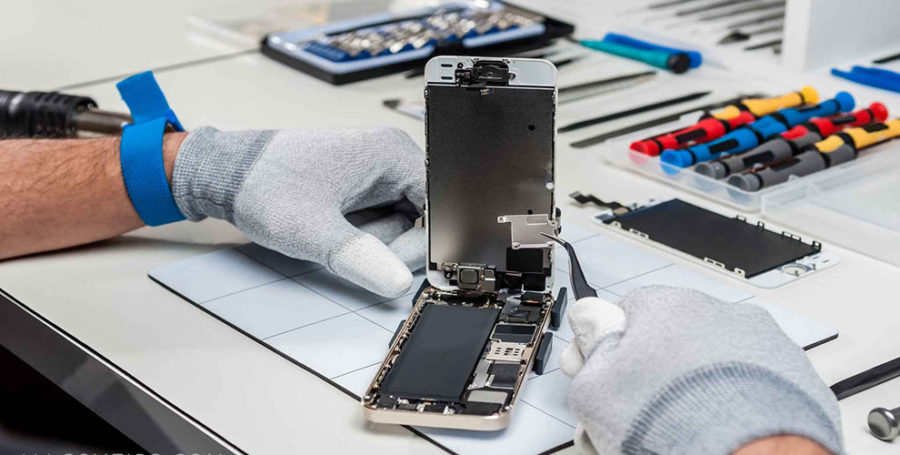Right to Repair Movement Picking up Steam
October 31, 2021
Over the past couple of years, the right to repair movement has grown to the point its advocates have been pushing for for years, garnering the attention of the mainstream media and more importantly representatives across the country.
But what is right to repair anyway? Essentially, it’s the advocation for legislation making the repair of various products easier, cheaper, and more accessible to consumers and independent repairers alike. This is largely targeted at car manufacturers, farming equipment manufacturers like John Deere, and large tech companies like Apple for severely limiting the means by which repairs can be done.
Apple in particular has been scrutinized for reserving documentation needed for repairs like device schematics, software locks, having strict control over their suppliers making it impossible to acquire official components, overcharging on repairs, and for contributing to the ever growing problem of unnecessary waste.
To encourage competition and more accessible repair services, many have suggested authorization or certification programs for repair shops as an ideal solution, and Apple has made that an option for years now. But while it seems like a great idea on paper, in practice it’s not so simple.
A report from VICE revealed that although Apple’s Authorized Service Provider program grants access to guidebooks and training, the program greatly inhibits what repairers are allowed to do. For instance, the only repairs that are allowed on any Apple products are iphone batteries and screens despite the multitude of other potential repairs. These also come at a great cost and inconvenience to both parties as the program doesn’t allow the storage of these components which means waiting for shipping, and for any other repair it means sending the device to Apple and waiting up to two weeks.
The program restricts shops from performing any other type of repair, penalizes repair shop for storing Apple parts, original or not, encourages shops to sell brand new devices rather than fix the existing ones, and also sends Apple employees to perform unprompted inspections not only on the shops themselves but also the customers and their personal data.
Today, twenty-seven states have issued legislation aiming to reduce the monopolistic power many companies hold on repairs. Along with the many right to repair bills that New York has passed, a press release on congressmen Joseph Morelle has detailed his proposal for the Fair Repair Act which will require Original Equipment Manufacturers to provide device parts and tools along with diagnostic information to third party repair shops. Other notable New York bills which aid the right to repair include the Digital Fair Repair Act.
On the federal scale, however, President Biden signed an executive order to promote competition in the American economy on July 9th which, among other things, urges the FTC to step in and regulate anti-competitive practices when it comes to the independent repair market.
